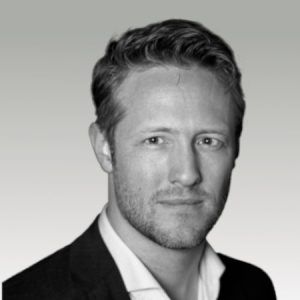
Thomas Wedell-Wedellsborg
Guest is known for...
Thomas Wedell-Wedellsborg is a renowned author and speaker, best known for his book “What’s Your Problem?” which offers insights on solving the right problems. His research on innovation has been featured in several top publications, and he has been recognized as a “Top 20 International Thinker” by HR Magazine.
Here's what I will learn...
I believe that we are taught how to solve problems in our growing up years but one of the distinctive elements of leadership is about knowing which problems to solve and which ones not to solve. How we frame problems and which ones we go after is arguably one of the meta-skills of the times we are in.
LISTEN TO THE FULL CONVERSATION
From the Podcast
Thomas speaks about the context behind the fact that we have mirrors in elevators and speaks about the criticality of not taking problems too literally. He speaks about how our default wiring can sometimes lead us to frame problems in a certain way and how it can be limiting.
Thomas speaks about the myth of the False Binary and how that can lead us to choosing from a limited set of options. It is a very powerful concept which can have a profound implication on how we make choices especially during key phases of transitions.
Thomas speaks about the challenges in framing questions that are specific to our journeys. Philosopher Rene Descartes asked the question – Who am I? Is that the right question? Or is it something else? “What the Heck do I do with my life” is the title of a recent book by Ravi Venkatesan (who has also been on the podcast). Thomas sheds some light on how we can frame some of the fundamental questions we ask around our lives.
Thomas speaks about presented problems versus open-ended problems. He says that there are three types of open-ended problems, something around a pain point, something around a nebulous goal or a solution someone fell in love with. We speak about how we approach some of these tough open-ended problems as we navigate through life.
Thomas says that designers distinguish between features and benefits, negotiators distinguish between positions and interests and policy experts between outputs and outcomes. He expands on the nuance here around focusing on the underlying and not getting swept away by surface level considerations.
Thomas speaks about how we can teach reframing to kids, something that we don’t explicitly discuss with children. He speaks about the fact that children, often, are better at this than we adults think they are.
Thomas speaks about what we could do in the way we frame the questions so that we can elicit candid responses from the other side.
Thomas speaks about the criticality of labelling emotions that the other person is experiencing and that could be an opportunity to get to a better place.
Thomas speaks about the power of problem framing in the context of Coaching. The way we frame a problem can have a profound implication on the path we undertake.
